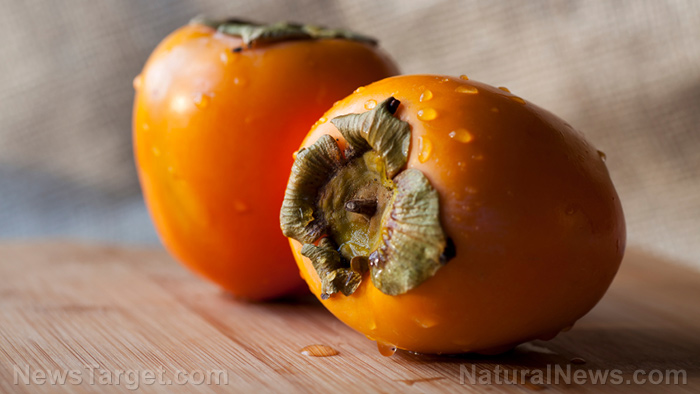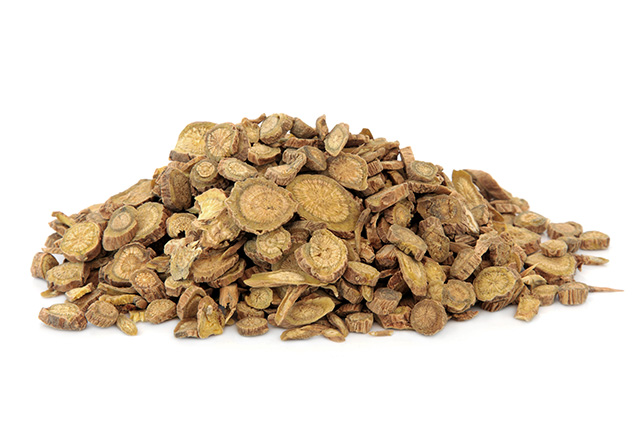Exploring the benefits of chicoric acid: How can this antioxidant be used in functional food?
04/30/2020 / By Evangelyn Rodriguez

Chicoric acid is a useful plant compound that is present in the roots of many plants, especially those that grow in the Mediterranean region. These plants have been used as alternative medicines or as food supplements for many years. The most abundant sources of chicoric acid include the roots of the flowering herbs, chicory (Cichorium intybus) and purple coneflower (Echinacea purpurea), and the culinary herb, basil (Ocimum basilicum).
In a recent study, researchers from Jiangsu University in China and the University of Massachusetts explored the health benefits of chicoric acid by reviewing studies conducted on cell cultures and animal models. They found that, besides reducing inflammation and regulating inflammatory responses, chicoric acid can also influence brain and liver function, as well as glucose and lipid metabolism. Their full report was published in the Journal of Medicinal Food.
Chicoric acid and its health benefits
Chicoric acid is one of the most well-known hydroxycinnamic acids — aromatic, non-flavonoid phenols that play an important role in the stability, flavor, color and nutritional bioavailability of foods rich in these compounds. Examples of these foods include fruits like kiwis, blueberries, apples and grapes as well as coffee and cereal grains like wheat, rice and oats.
Like other hydroxycinnamic acids, chicoric acid has been used as a medicine and as a nutraceutical due to its antioxidant, anti-inflammatory, antiviral and immune-stimulating properties. It has also been reported to have anti-obesity and neuroprotective activities. In animal studies, chicoric acid has demonstrated the ability to restore glucose and lipid homeostasis, which helps with the maintenance of healthy blood sugar and cholesterol levels, as well as healthy liver function.
The antioxidant and anti-inflammatory properties of chicoric acid can also impact brain health and function. In a recent study published in RSC Advances, researchers reported that chicoric acid can protect brain neurons from damage caused by oxidative stress. Mice and cells treated with chicoric acid showed significant reductions in their production of pro-inflammatory molecules.
In addition, chicoric acid activated their natural antioxidant defense system by increasing the expression of antioxidant enzymes. These activities, the researchers noted, effectively prevented the death of nerve cells in the brain. This makes chicoric acid a promising nutraceutical or functional food ingredient to use for countering oxidative stress-related cognitive impairment.
Chicoric acid sources and uses
Chicoric acid is present in large quantities in widely used medicinal herbs, such as chicory, purple coneflower and basil. Because of this, chicoric acid is often used as a marker in quality checks for these herbal products. The most abundant source of chicoric acid is chicory, a flowering herb from the dandelion family.
The roots of chicory are usually baked, ground and used as a substitute for coffee in Europe. The chicory plant is also cultivated for its leaves, which can be used to make a salad. Chicory is rich in vitamins A, C , E and K, as well as in antioxidant carotenoids that support eye health.
In Turkey, chicory is made into tea and is considered a traditional remedy for diabetes, epilepsy, hemorrhoids, inflammation and digestive disorders. Plant roots containing chicoric acid are also used in traditional Asian medicine to treat infectious diseases, inflammatory diseases, eye diseases and nerve injuries.
Meanwhile, herbal products made from purple coneflower, a perennial herb from the sunflower family, are widely used in North America to prevent the common cold and flu. Purple coneflower is also used to treat infections like malaria and genital herpes, as well as other conditions like rheumatism, fatigue and indigestion.
Basil, a flavorful herb from the mint family, is also a good source of chicoric acid. While sweet basil is the most widely grown variety and also the most commonly used for cooking, holy basil is the main type of basil used to make herbal supplements and herbal teas. Both varieties can improve blood sugar levels and help reduce stress.
Learn more about these herbs and other sources of chicoric acid at PlantMedicine.news.
Sources include:
Tagged Under: alternative medicine, anti-inflammatory, antioxidant, antiviral, basil, chicory, Echinacea, food cures, food is medicine, functional food, herbal medicine, Herbs, natural cures, natural medicine, nutraceuticals, phytonutrients, plant medicine, purple coneflower, remedies, research, supplements
RECENT NEWS & ARTICLES
COPYRIGHT © 2017 RESEARCH NEWS




















